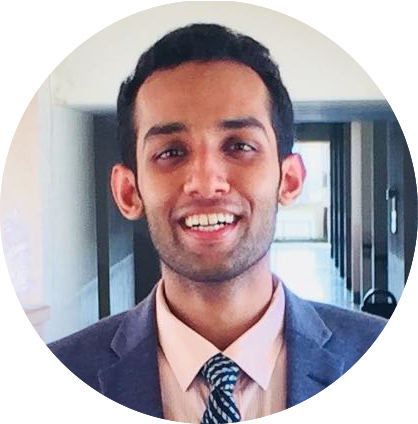Today, I had the wonderful opportunity to attend Dr. Arvind Subramaniam's (DAS) talk at Ashoka University.
If you are an economics student, I'd be what Ricky Gervais was to the people in the movie 'The Invention of Lying'. Well certainly up until the point where he... (let me now ruin it for you) But believe me, Dr. Subramaniam is a celebrity. He (if I may demote him to the pronoun used for us mortals) was the Chief Economic Advisor to the Government of India between 2014 to 2018.
When it comes to academia, I've had an unjustified liking to those who write using a fountain pen and to those who do not use a microphone in a lecture theatre. It is my academic equivalent of 'love at first sight' In hindsight, I think this stems from watching my mother, who is a wonderful teacher by profession. I'm unsure of the former but Dr. Subramaniam is indeed a great orator. Even if Dr. Subramaniam did not know a word of economics (believe me it is quite the opposite), I still believe that my Indian government would still want him on board given how great a communicator he is. This being my first economics talk (at least the first one I will definitely remember) was quite animated which I certainly believe was a conscious doing by DAS. Adding to the ton of economic jargons which, surprisingly was not totally out of my reach, the discussion by the professionals at the end of the talk involved a lot of muscle memory statistics, numbers, and more jargon! DAS was as energetic throughout with sentences like "I'll fail your teachers before I fail you", "What do you do when a constant can change?", "Surprise, Surprise Prof.X", rightly predicting Prof.X will have an issue with what he (DAS) was about to say.
To the topic in hand, recent times have certainly highlighted the economic slowdown in India and this is worrisome especially given Modi's 5 trillion economy plan. When, I, who to date has no idea what the words on the business section of the newspaper means, could comment on the status of the Indian economy, I feel unsettled by the gravity of the situation. Heck, my beloved Maruti and Air India are under financial loss 😢. Dr. Subramaniam's talk first acknowledged such a slowdown and went out to reason out what might have caused such a slowdown.
On a tangent, the past few months at Ashoka were trying to make sense of the chaos which is the calculation of the GDP. I've always thought of economics as a human-centered field which I believe makes it too complex for me to understand and the past few months have certainly made. What I find unsettling is the 'different schools of thought' argument which I have been at the receiving end of during conversations with students of economics.
Q: Why is it so hard to calculate India's GDP?
R1: The government does not release all the data.
R2: The government does not have all the data.
R3: India has a large unaccounted sector.
R4: Extrapolation methodologies are not robust
R5:
.
.
.
What I truly adored from Dr. Subramaniam's talk is the long term thinking he hosts. He took us back to the global financial crisis of 2010-2011 and from there commented (we've promised not to discuss those comments on social media and hence I shall not be elaborating on that) on series of events which led to the state of the Indian economy as it is today. Additionally, he suggested few reforms which could be implemented to bring back the economy.
But all this was not the point of this article.
For me it boils down to his response to a question I asked him at the end of his talk:
RA: Could the state of the current economy be predicted back when you say it
all started?
AS: No. Anyone who says it could have is a liar
RA: Then what guarantees that your current suggestion and reforms will
have a cascading effect in the positive/negative direction?
AS: That is a reason why reform is always debated upon cause we
cannot predict exactly
Mates, today I realized a lot of things like every day. Among them, I was shown that when applied to real-world systems, economics loses its predictive power (if it had any, to begin with).
This gave rise to a thought in me:
We have, with the predictive power of natural sciences, sent man to the moon and man-made objects beyond our imaginations. Yet, back home, on Earth, we struggle to understand ourselves as a society. Does that mean if and when we do, understanding ourselves would be the greatest feat of humanity? I've always thought space exploration is the most humbling experience of humankind. Maybe the day we understand ourselves as humans and as a society might top that.
It truly was a talk I will cherish for life. You truly are one of a kind, DAS 😃
